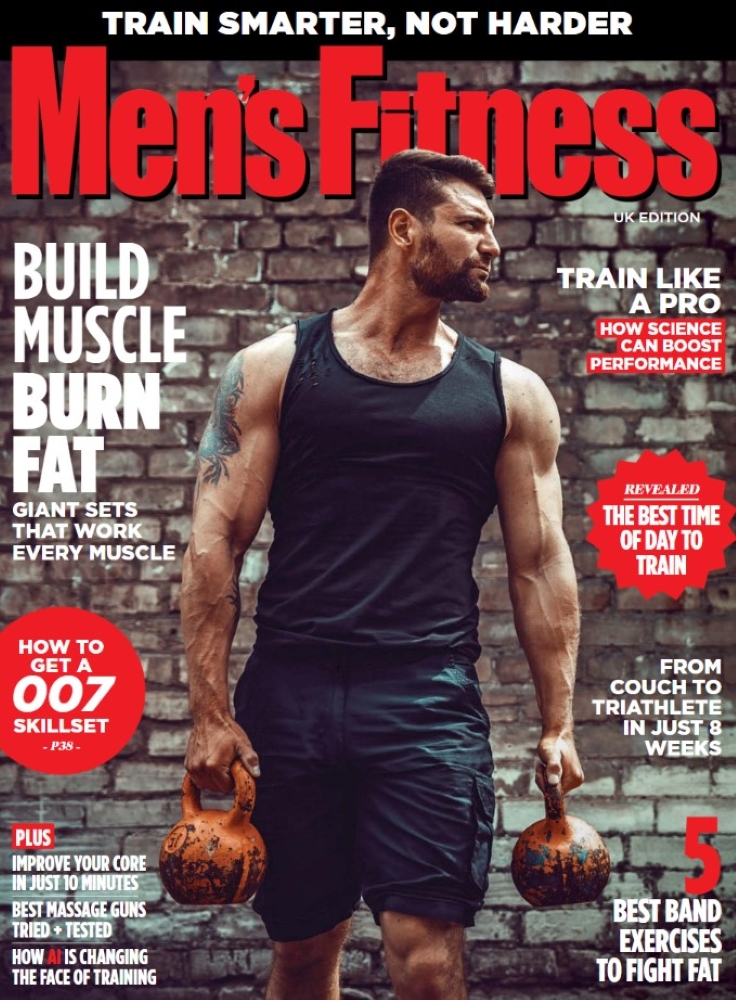‘Rapid Change’ therapist Howard Cooper explains why you need to stop thinking of willpower as an obstacle to change.

“If you don’t eat better and exercise more, you’re likely to die,” the doctor warns the patient who just barely survived a heart attack.
So, tell me, if that were you, would you ‘mend’ your ways? Would the fear of death give you enough willpower to take positive action and change your life? You’d think so, right?
But somewhat alarmingly, research shows that when faced with this situation only one in seven of us are able to follow through.
That’s not because we (the other six) lack willpower. It’s actually because willpower isn’t really the answer to change.
When people come into my clinic, they often ask me for help with things like: “Can you increase my willpower so I can eat healthy? Or stick to my gym plan?” But let’s stop right there and think about this mechanism.
What they are actually implying is that there is an ‘inner monster’ trying to tempt them into eating unhealthy stuff or sabotage their gym success. You know that little voice that says: “Go on, just have another slice,” or “Just stay in bed and forget the gym,” etc. They are often talking about that perceived monster right there.
So, then people jump into battle mode and think that in order not to succumb to the monster, they need to resist it and ‘willpower’ it to the ground.
But even engaging in this way of thinking implies that the monster in your mind has some real hold over you. In fact, the more willpower you tell yourself you need, the more powerful you unconsciously make that inner voice.
So how do you go beyond willpower?
Let’s imagine you want to achieve a new fitness goal, and you identify the things that you need to achieve them. For example, you might envisage increasing your training, eating healthier, sleeping better, varying your workouts, and so on.
Those goals are all well and good. But what if you also start to hear that nagging inner voice saying: “Stay in bed,” or “Skip the gym today”?
We need to look at what that ‘inner self-sabotaging monster’ actually is.
It’s just a thought. It’s either words in your head, an image in your mind, or a sensation in your body. This is simply thinking in action.
Now try an experiment. Close your eyes and allow yourself five minutes to just allow thoughts to appear. And when you do this, notice the images, words and sensations that arise. However, the most important thing is to not allow yourself to think about pink toothbrushes.
“Oh no!”. Guess what is likely to have happened? Pink toothbrushes started to appear in your thinking. Why? Because you made them something you shouldn’t focus on.
Now ask yourself this.
Given that you thought about pink toothbrushes, do you now have to go to the shops and buy a pink toothbrush? Of course not!
And notice something else – that you didn’t have to get rid of the image in your head in order not to go to the shops to buy it.
You didn’t avoid buying a pink toothbrush by fighting the thought out of your mind. Nor using ‘willpower’ to overthrow the pink toothbrushes’ tyrannical dictatorship over you. You just noticed it was a thought, and no action was required.
What if you could learn to see your thoughts – “I’m tired / I need a piece of cake / I’m going to skip the gym today” – as just thoughts?
Then you could notice they were there without having to take them seriously. Consider the number of thoughts you have every day and how many arise without you needing to take action.
Ask yourself: does hearing the words: ‘You need to eat cake’ contain a compulsory and unavoidable command to eat cake?
Answer: No!
From this, you can logically ask yourself: do you need to get rid of the thought, or overpower these magic words, in order to stay away from cake?
Answer again: No!
Learning to notice your thoughts as just images, words and sensations that appear in your mind can be liberating and help you to go beyond willpower.

How Jake Hazell went beyond willpower to conquer heart attack worries and panic attacks
Fitness instructor Jake Hazell’s life was struck by tragedy when his partner, TV presenter and YouTuber Emily Hartridge, was killed in a road accident last summer.
Emily, 35, was the first person in the UK to have died riding an electric scooter, so as well as shock, trauma and bereavement, Jake also had to cope with all the media attention.
Jake had struggled with anxiety and panic attacks previously, and this tragedy certainly didn’t help. It also affected his ability to do his job, so he sought my help.
Jake tried forcing himself to push through the worry and negative thoughts he was experiencing, but that didn’t work so well. We explored changing his relationship with his thoughts.
He let go of the illusion that just sheer willpower was the answer. He went beyond willpower to take a fresh approach with greater clarity of thought.
Jake, 27, says: “I’m very into fitness and relied on personal fitness to help my mental health and recovery. But all of a sudden, my anxiety got so bad, I started having panic attacks.
“When I was working out, my heart rate would go up and my brain would assume I was having a heart attack and was about to keel over.
“A lot of my work is in classes, teaching between 20 and 40 people at a time. My panic attacks affected my work very much. I tried to get through it by sheer willpower, but Howard taught me one of the best lessons I’ve ever had – that a thought is not a threat.
“After all, when you’re doing a high squat jump, repeating it 30 times, it’s not abnormal for the human heart to increase its beat rate.”

How Millie Knight bypassed willpower to beat fear
British Paralympic world downhill skiing champion Millie Knight is an inspirational example of how you can achieve your toughest goals by reaching beyond willpower – even if you are registered blind.
After suffering an infection as a baby, Millie, now 21, has only 5 per cent vision, which is peripheral and blurry. It means she can only see, at most, two to three meters in front of her when she hurtles down mountains at high speeds.
Despite this, she’s won clusters of Paralympic and other competition medals, including Gold. But she picked up some serious injuries along the way after suffering two horrific crashes.
They left her traumatised, with a profound fear of falling. Her first fall saw her cart-wheeling head-over-heels and dislocating her jaw. In a second crash, she suffered concussion, and lost her balance and memory, luckily only temporarily.
After her 2018 Winter Paralympics in PyeongChang, it was clear her huge drive, willpower and determination to succeed again were not enough. Our sessions together helped Millie find renewed strength to compete and a fresh focus.
“I’m visually impaired and I ski with my guide, Brett. The glory of winning Gold at the World Championships was somewhat tarnished,” recalls Millie.
“I came through the finish line at 115 kilometres an hour and failed to stop. Three weeks later, I did exactly the same thing as my previous crash. I flipped three times, landing on my head each time, and was blue-lighted off to hospital.”
Millie modestly describes her success as “80 per cent psychological and 20 per cent talent,” adding: “My high-speed ski crashes left me very fearful of falling. But it only took one session with Howard for me to feel more confident. I started to feel I could conquer my fear and that it was possible to ski fear-free. I have no idea how he does it!
“From having been too scared to even speak about skiing and my crashes, I was able to laugh and smile about it! ‘Fear’ isn’t even a word I have to use these days.”
Five Steps to Create your Inner Clarity
1. Find a quiet place and make yourself comfortable.
2. Close your eyes and just notice what emerges in your mind.
3. Label your thoughts as they emerge as ‘words, images, sensations’.
4. Apply yourself to this for at least five minutes at a time.
5. Practise this often as it can increase your ability to recognise thoughts as just thoughts – without getting sucked into them.
Howard Cooper is one of Britain’s leading ‘Rapid Change’ experts. A qualified hypnotherapist and Master Practitioner in Neuro-Linguistic Programming (NLP), he’s spent the past 17 years helping people create rapid shifts in their thinking. For more details of his work, visit rapidchange.works










